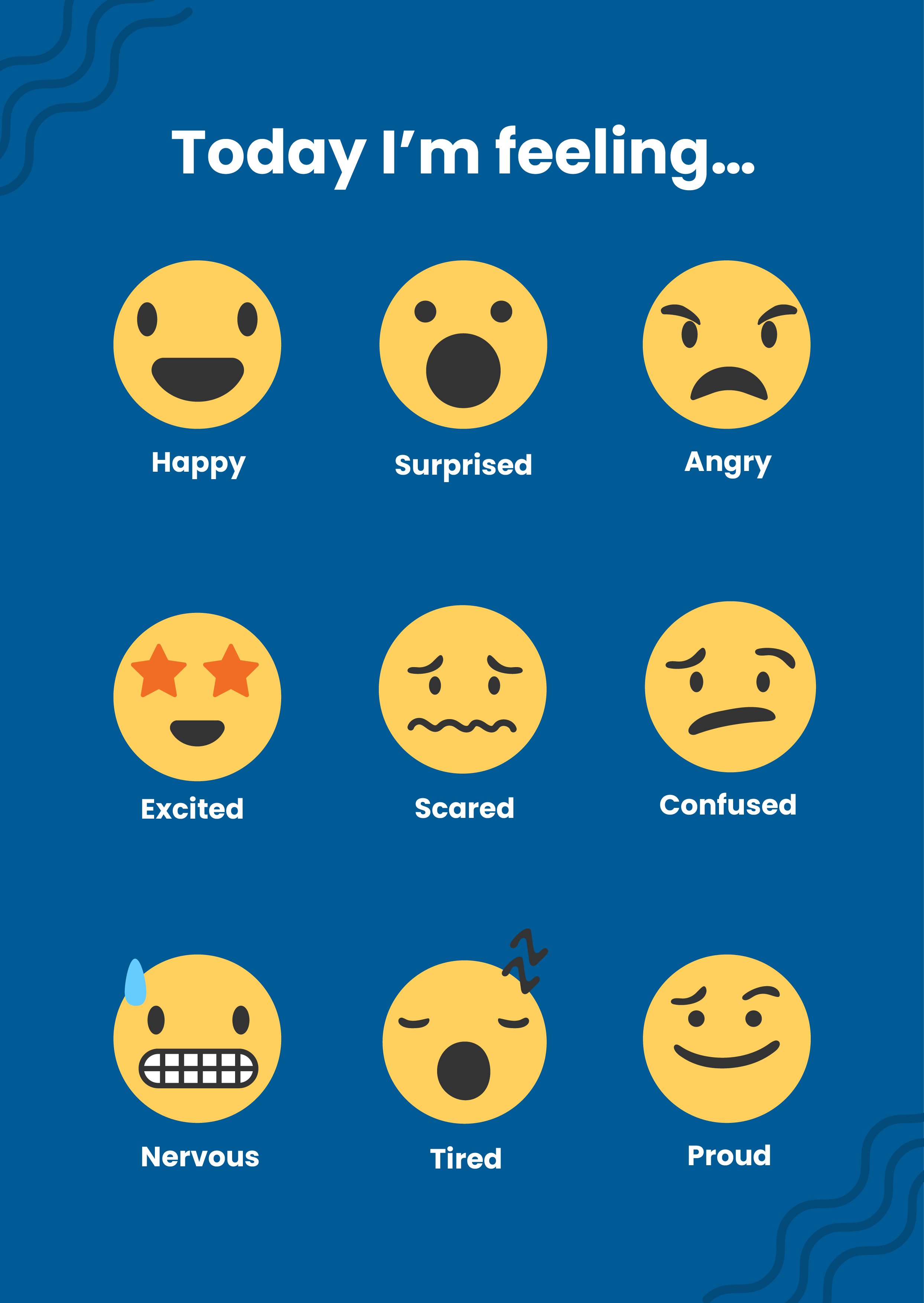
Ever found yourself pondering what truly differentiates an exceptionally intelligent individual? Is it merely their capacity to conquer complex puzzles or a knack for rapid learning? Many of us hold a preconceived notion that high intelligence manifests overtly—perhaps through a display of prodigious mathematical prowess or an ability to engineer world-saving machinery. We often assume that a “big brain” must come with an equally obvious, conventional intellect, perhaps a string of prestigious academic achievements.
Yet, the fascinating reality is far more nuanced. Intelligence, a multifaceted concept generally defined by the ability to perceive information and possess logic, understanding, self-awareness, creativity, and problem-solving capacity, doesn’t always wear its brilliance on its sleeve. In fact, some of the most striking characteristics of individuals with exceptionally high intelligence are surprisingly counterintuitive, defying our common perceptions and inviting us to rethink what it truly means to be smart.
Join us on an enlightening journey as we unravel a selection of these unusual signs and personality traits. We’ll delve into the science and observations that challenge conventional wisdom, offering a fresh perspective on how high IQ might subtly, yet profoundly, influence an individual’s thoughts, behaviors, and even their unique way of engaging with the world. Prepare to be surprised by the hidden indicators of extraordinary intellect.

1. **Mental Illness**: It might seem profoundly counter-intuitive, but there’s a highly controversial yet persistent link suggested between mental illness and intelligence. This connection often comes as a shock, especially when we picture brilliant minds as paragons of perfect mental equilibrium. However, the annals of history offer numerous examples of exceptionally gifted individuals who also grappled with severe mental health conditions.
Consider figures like Edgar Allan Poe, the master of macabre literature, or the abstract expressionist painter Jackson Pollock, whose innovative works redefined art. Even the soulful musician Amy Winehouse, known for her profound lyrical depth, is cited in studies exploring this link. All these remarkably talented individuals were associated with bipolar disorder, shedding a different light on the intersection of genius and psychological vulnerability.
While the exact reasons for this complex association remain elusive, research has begun to offer intriguing insights. One study, for instance, uncovered that a particular protein, vital for memory and curiosity in mice, also exhibited an association with bipolar disorder and schizophrenia in humans. This suggests a potential biological underpinning that might contribute to both heightened cognitive function and increased susceptibility to certain mental health conditions.
Another compelling study posited that the very cognitive abilities essential for quickly processing information and solving intricate mathematical equations might concurrently elevate an individual’s risk for mania. This indicates that the intense mental processing power characteristic of high intelligence could, in some cases, create a predisposition to extreme mood states, challenging the traditional view of mental health and intellectual prowess as entirely separate domains.

2. **Swearing**: If you’ve ever encountered someone liberally using expletives, your immediate thought might not be, “Wow, what a brilliant mind!” In fact, cursing often carries a social stigma, sometimes erroneously associated with a limited vocabulary or a lack of control. However, scientific findings present a fascinatingly different perspective, suggesting that individuals who swear frequently may possess a surprising indicator of high intelligence.
A study published in Language Studies meticulously investigated the relationship between profanity and linguistic ability. Their compelling findings revealed that people who commonly swear tend to have larger vocabularies compared to those who abstain from using strong language. A rich and expansive vocabulary is, of course, a well-established trait widely associated with higher intelligence, as it reflects a greater command over language and a broader range of expressive capabilities.
This counterintuitive link challenges the stereotype that intelligent people always speak with pristine, sanitized language. Instead, it proposes that the ability to deploy a wide array of words, including those considered taboo, demonstrates a sophisticated linguistic fluency. It suggests that highly intelligent individuals may simply possess a broader mental lexicon, enabling them to choose from a wider spectrum of words to articulate their thoughts, feelings, or frustrations, without necessarily indicating a lack of education or intellect.

3. **Risk-Taking**: The notion that intelligent individuals are inherently cautious and calculated might be a common assumption. We often imagine them weighing every single variable, meticulously planning their every move to minimize potential pitfalls. However, recent research suggests that a willingness to embrace new challenges and take risks might actually be a surprising hallmark of higher intelligence.
A study conducted in Finland, for instance, explored this intriguing connection by utilizing a driving simulation. Participants were observed as they navigated various scenarios, and their decision-making tendencies, particularly those involving risk, were carefully analyzed. The findings were quite illuminating: individuals who made more daring decisions during the simulation tended to exhibit higher levels of intelligence.
What makes this observation even more compelling is the neurological correlation discovered. The study found that these risk-taking participants possessed a greater volume of white brain matter. This region of the brain is critically associated with cognitive function, particularly with information processing and communication between different brain areas. This suggests a possible neurobiological basis for the link between increased cognitive capacity and a greater propensity for calculated risk-taking, indicating that a more efficient brain might be more adept at evaluating and navigating novel, potentially risky situations.

4. **Laziness**: This trait undoubtedly stands as one of the most perplexing and surprising indicators of high intelligence. The conventional image of a highly intelligent person often includes tireless dedication, relentless studying, and a constant drive to be productive. Yet, a study originating from Florida Gulf Coast University offers a provocative counter-narrative, suggesting that smarter individuals might, paradoxically, be more inclined towards what appears to be laziness.
Their research posits that highly intelligent people exhibit longer attention spans. This extended capacity for focus means that big-brained individuals don’t feel the constant imperative to be engaged in external activity or to be perpetually “doing something.” Instead, they are quite content, and indeed, often thrive, when simply sitting and thinking. Their minds are constantly at work, processing, contemplating, and conceptualizing, even when their physical bodies are at rest.
This isn’t to say that intelligence equates to a lack of ambition or productivity. Rather, it implies that the intellectual work of highly intelligent individuals might often be internal, engaging their substantial cognitive abilities without requiring overt physical manifestation. While others might need external stimuli to feel productive, the intelligent mind can be actively expanding and deepening its understanding through quiet contemplation, effectively making their brain “get even larger” through internal processing rather than constant external action.

5. **Anxiety**: Anxiety, often perceived as a debilitating condition, appears to possess a surprising correlation with high intelligence. It seems counterintuitive that a state of constant worry and apprehension could be linked to superior cognitive abilities. Yet, a study conducted at SUNY Downstate Medical Center in New York presented compelling evidence suggesting that individuals who experience anxiety tend to exhibit highe- IQs than those who do not.
For anyone who has personally grappled with anxiety, this connection might resonate deeply. The nature of anxiety often involves a mind that is perpetually active, constantly engaging in complex thought processes. An anxious individual frequently finds themselves worrying, meticulously considering various potential outcomes for a given situation, and critically reflecting on past experiences to discern how they might influence present or future scenarios. This internal, incessant mental activity is, in essence, a form of hypercognition.
These patterns of anxious thought are not merely unproductive rumination; they often involve highly developed problem-solving skills, rigorous critical thinking, and advanced abstract reasoning. The continuous mental simulation of possibilities and analysis of contingencies can sharpen an individual’s cognitive tools, making them exceptionally adept at identifying potential issues and devising solutions. Thus, what manifests as anxiety on the surface might, beneath, be a testament to a highly analytical and deeply engaged mind.”
Having explored a fascinating array of unconventional indicators of high intelligence, from the surprising links to mental health and linguistic habits to the unexpected role of perceived ‘laziness,’ we’ve begun to unravel the nuanced tapestry of the intelligent mind. But our journey into the hidden hallmarks of advanced intellect is far from over. Beyond the traits that might initially raise an eyebrow, there are further intriguing characteristics and cognitive strengths that subtly, yet powerfully, offer clues to an advanced intellect. These aren’t always the overt signs we’re taught to look for in a “smart” person; rather, they are deeper aspects of personality and cognitive function that shape how individuals perceive the world, adapt to challenges, and engage with knowledge. Let’s delve further into these compelling indicators, expanding our understanding of what it truly means to possess a high-IQ, and perhaps even revealing a few surprising insights about ourselves.

6. **Being a cat lover**: It might sound like a whimsical addition to a list of serious psychological traits, but studies have ventured into the fascinating, if slightly unexpected, connection between one’s preferred pet and their intellectual leanings. While the internet might be playfully divided into “cat people” and “dog people,” research suggests there might be more to this preference than mere animal affection. In a compelling study conducted by researchers from Carroll University, a significant finding emerged: student participants who identified as cat lovers consistently scored higher on intelligence tests when compared to their canine-loving counterparts. This observation, while perhaps inviting a chuckle, opens up an intriguing avenue for understanding how even seemingly trivial lifestyle choices might align with deeper cognitive predispositions.
This curious correlation isn’t necessarily about the inherent intelligence of the animals themselves, but rather about the personalities and cognitive styles they appeal to. Cat owners are often perceived as more independent, introverted, and perhaps more open-minded, characteristics that can align with intellectual pursuits requiring deep thought and solitary contemplation. The nature of caring for a cat, which often involves less direct instruction and more observation and understanding of subtle cues, might also foster a different kind of cognitive engagement than the more overtly social demands of dog ownership. While the study itself doesn’t offer a definitive “why,” the implication is that certain intellectual profiles may naturally gravitate towards the unique companionship offered by felines.
This surprising link challenges us to consider the breadth of indicators that might subtly signal a high-IQ. It suggests that intelligence doesn’t just manifest in traditional academic or problem-solving contexts, but also in the less obvious facets of our lives, even down to the types of pets we choose to share our homes with. So, the next time you encounter a proud cat parent, you might just be in the presence of someone whose mind operates with a remarkable degree of intellectual curiosity and capacity, a playful reminder that brilliance can be found in the most delightful and unexpected places. This finding, for many, is a validation, echoing the sentiment of “Take that, haters!”

7. **Curiosity and a Thirst for Knowledge**: While curiosity is a universally lauded trait, the sheer depth and insatiable nature of this characteristic in highly intelligent individuals can be a profoundly surprising indicator of their cognitive prowess. This isn’t just about a passing interest in new things; it’s a relentless, almost primal, drive to understand “why” and “how,” propelling them to constantly seek new information and experiences to expand their understanding. High-IQ individuals are often driven by a deep, intrinsic curiosity about the world, manifesting as a perpetual inquiry that extends far beyond the surface level of any given topic. They don’t just consume information; they metabolize it, breaking it down, connecting it, and building ever more intricate mental models.
This relentless pursuit of knowledge acts as a continuous engine for intellectual growth and an undeniable hallmark of a highly active and capable mind. For an intelligent individual, every new piece of information is a puzzle piece, inviting them to fit it into their existing cognitive framework or, more excitingly, to adjust that framework to accommodate novel insights. This deep engagement fosters unparalleled abstract thinking and problem-solving skills, as they are constantly refining their understanding of complex systems and relationships. They thrive on the intellectual stimulation that comes from uncovering new facts and theories, often becoming autodidacts who delve into subjects with an intensity rarely seen in the general population.
Thus, this pervasive thirst for knowledge is more than a personality quirk; it’s a fundamental operating mode for a high-IQ brain. It signifies a mind that is constantly at work, processing, contemplating, and conceptualizing, even when others might be content with superficial explanations. This continuous cognitive engagement, fueled by profound curiosity, not only indicates a robust intellect but also acts as a positive feedback loop, further enhancing their problem-solving capabilities, creativity, and overall adaptability. It’s a testament to the idea that for truly intelligent individuals, learning is not merely a task but an inherent way of being, leading them down countless pathways of intellectual exploration.
8. **Adaptability and Flexibility**: In a world that often prizes specialized expertise and unwavering conviction, the profound adaptability and cognitive flexibility of high-IQ individuals might come as a surprising, yet crucial, indicator of their superior intellect. Far from being rigidly confined to their brilliant frameworks, these individuals excel at adjusting to new situations, rapidly incorporating new information, and learning effectively from their mistakes. They are not easily flustered by unexpected challenges or changes in circumstances; instead, they view them as opportunities to engage their sophisticated cognitive tools, quickly re-evaluating assumptions and creatively adjusting their strategies to navigate novel environments. This capacity for mental agility distinguishes them, allowing them to pivot with remarkable ease.
This isn’t merely a willingness to change one’s mind; it reflects a core neurological efficiency in information processing and a highly developed capacity for abstract reasoning. High-IQ brains are wired to swiftly process disparate data, identify new patterns, and reformulate mental models, making them exceptionally adept at navigating ambiguity and complexity. They demonstrate an impressive ability to switch between different cognitive strategies, considering multiple perspectives and synthesizing diverse pieces of information to form a coherent, albeit evolving, understanding. This fluid intelligence enables them to transcend conventional thinking, allowing them to see solutions and pathways that might remain obscured to others who are more set in their ways.
The ability to be adaptable and flexible is therefore a powerful testament to a highly efficient and dynamic mind, capable of continuous evolution and recalibration. It means that an intelligent individual isn’t just good at solving existing problems, but is also exceptionally skilled at adapting to entirely new problems or changing paradigms. In a rapidly evolving world, this trait becomes an invaluable asset, signifying a mind that is not only robust but also resilient, able to learn, unlearn, and relearn with remarkable speed and efficacy. This cognitive nimbleness is a quiet powerhouse, often working behind the scenes to ensure that high IQ individuals can thrive in almost any intellectual landscape.
By recognizing these subtle yet powerful signs, we gain a richer understanding of the diverse ways advanced intellect shapes human experience, inviting us to appreciate the brilliant complexities within ourselves and those around us. This exploration reminds us that the human mind is a frontier of endless discovery, where surprising connections often reveal the deepest truths. Understanding these varied manifestations of high-IQ not only deepens our appreciation for individual differences but also empowers us to cultivate and leverage our own unique cognitive strengths for maximum impact in our lives. Truly, the human mind continues to be the most surprising and rewarding frontier of all.




